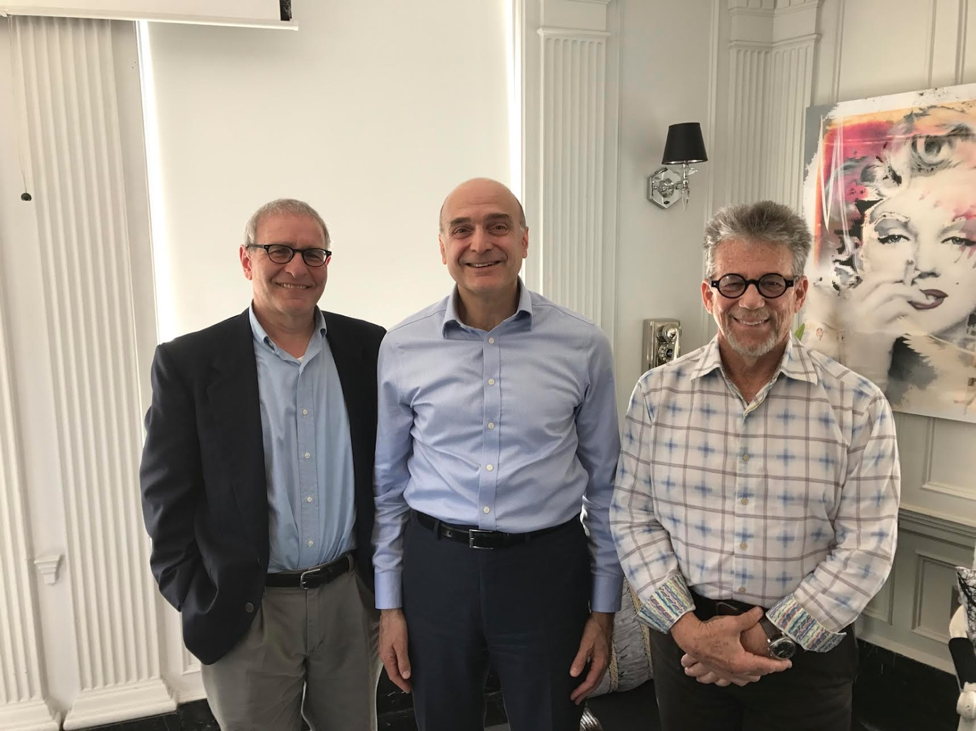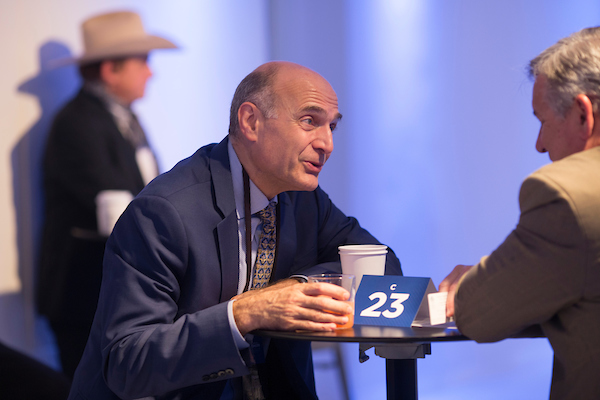
Case Study: Star Equity Acquires ADT Advised by Woodbridge
“As part of the Star platform, ADT will be able to accelerate its growth by making strategic investments to meet…
Musa Yenni founded Yenni Capital in 1991 after years at industry giants IBM and Intel, as well as private capital giants Cowen, Oppenheimer, and Goldman Sachs. His firm focuses on lower middle market businesses in the niche manufacturing industries and business services.
In September 2016, Yenni Capital acquired Steven Feller P.E., the leader in engineering consulting services in South Florida, as a result of a connection made on Axial. Since the acquisition, Musa and the company’s management team have been traveling the country meeting acquisition targets.
We talked with Musa about the deal — along with topics like growing up in Istanbul and staying abreast of the ever-changing middle market.
I understand you acquired Steven Feller P.E. as a result of a connection made on Axial. How did the deal unfold?
We were first introduced to Steven Feller P.E. by Benchmark International, an investment bank on Axial. There were already multiple buyers at the table and we did not find the opportunity compelling enough to pursue at that time, as we do not typically participate in broad auctions. However, when the same investment bank called us after the transaction did not close with another buyer, we jumped on the opportunity. We had a quick negotiation with the seller and signed an LOI.
We still had to renegotiate multiple times and it took us many months to close the deal, which can happen when buying from a founder who is selling his baby for the first time. However, we stuck with it and prevailed. The Steven Feller team chose Yenni Capital over other potential partners due to our relationships in the industry, because we were willing to work with the company to find an optimal transaction structure, and because we did not walk away from the transaction when issues came up even when most other buyers would have.

Switching gears, what prompted you to form Yenni Capital in 1991? What has been your biggest challenge since its inception?
I come from a family of successful entrepreneurs and small business owners. I have always been an entrepreneur at heart, even when I was working for larger firms like IBM. After working on Wall Street for some years, it was time to go on my own. I co-founded Yenni Capital with my wife. My biggest challenge was being undercapitalized and falsely assuming that my wife’s prominent family and business connections would be helpful in growing the company.
You were born in Turkey and speak multiple languages. How has your international background impacted your career over the years?
I am a Sephardic Jew who was born and raised in Istanbul, Turkey. I grew up listening to my parents speaking with their parents and friends in Spanish, French, and Turkish. I learned English at school and took the initiative to acquire a working knowledge of Hebrew relatively recently. I have used my ethnicity and knowledge of foreign languages extensively to bond with people and conduct business globally. We were doing more international business at Yenni Capital in its earlier years when that was more directly impactful, whereas our focus in recent years has been primarily US-based. Knowing multiple languages certainly makes business and personal life more colorful and enjoyable.

Lower and middle market M&A is very fragmented. How do you deal with this challenge?
Thanks to successful networking, we have established and improved upon our relationships with hundreds of intermediaries and other proprietary deal sources which channel us over 1,500 deals per year. We pursue further about 10% of those and aim to close three deals per year. That is just a drop in the bucket in the universe of lower/middle market M&A. However, it is a sizable enough drop to give our small firm a significant edge.
You’ve been an Axial member for many years. How does being a member impact your business day-to-day?
Axial contributes a significant amount of our day-to-day deal flow. Its excellent search engine allows us to limit the deals we see and pursue only the deals we seek. Their feature permitting the signing of standardized NDAs on the platform electronically has saved us a lot of follow-up time with sellers and their bankers. We have seen the tremendous value in Axial and have been one of its early members. Axial’s team, from its CEO Peter Lehrman at the top down to its account executives, has been terrific and very responsive.
[pull_right]”Axial contributes a significant amount of our day-to-day deal flow.”[/pull_right]
The proof is in the pudding: we recently closed our first deal on Axial which we are very excited about. We have offers out to buy additional companies we met over Axial as we speak. We look forward to closing one or more such deals this year.
What’s one piece of advice you think every business owner should hear when preparing for a transaction?
Our business model is to buy majority control ownership. We partner up with sellers and strong management teams who roll over equity and stay at the helm of the companies while we add value via active monitoring.
With Steven Feller P.E., we have been working to grow the business both via organic and inorganic opportunities. We have introduced new potential business through our relationships. Additionally, we have implemented operational and financial controls to drive efficiencies and improve the firm’s financial management. We hired a new CFO to the company and brought industry specialists to its board to help scale the business.

Connecting on a personal level and establishing trust and a good working relationship with sellers is crucial to a successful transaction.
My advice to sellers is not to overly prioritize the highest possible cash price they can get at the close. Other factors like synergy with the buyer can have a significant impact on the seller’s total upside and the company’s overall long-term health. It’s so important for sellers to also assess what value the buyer can provide and whether or not they have the stamina and patience to confront difficult situations at the company post-close.
